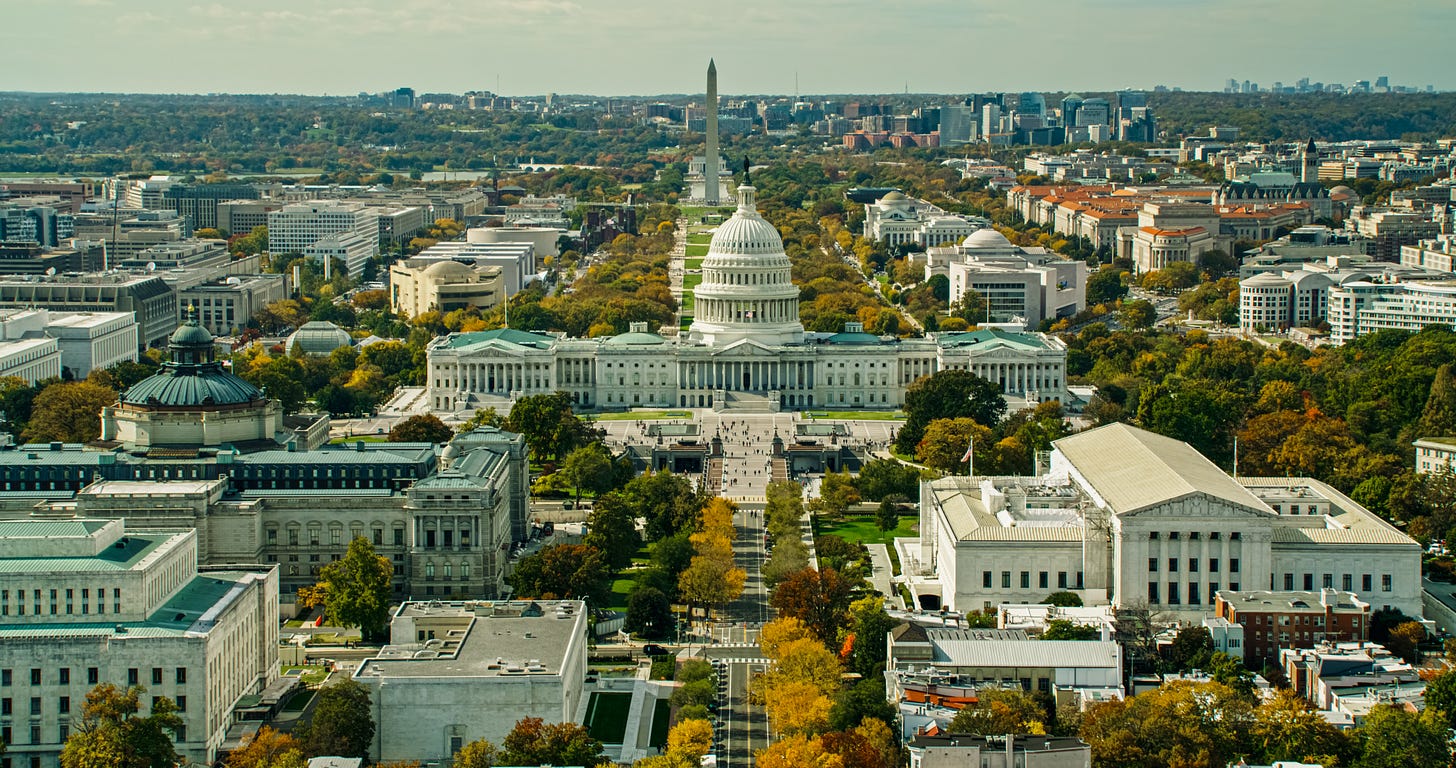Debt Digest | Sensible Farm and Medicaid Amendments Withdrawn From the OBBBA
Links & Fiscal Facts

Here are this week’s reading links and fiscal facts:
Sensible farm and Medicaid amendments withdrawn from the OBBBA. According to Politico, Sen. Chuck Grassley (R-IA) struck a deal to withdraw his amendment capping eligibility for farm subsidies, which would have prioritized working-class farmers over wealthier farmers. After pressure from farm-state Republicans and interest groups, Grassley agreed not to force a vote in exchange for a vague promise of future legislative consideration—a promise that may never materialize. Likewise, Politico reports that Sen. Rick Scott (R-FL) dropped his amendment to phase out the enhanced federal Medicaid match for Obamacare expansion enrollees. The withdrawal of both amendments marks a missed opportunity to reduce the OBBBA’s cost by scaling back high-income welfare and correcting a Medicaid funding distortion that favors able-bodied adults over the truly vulnerable.
How New Zealand invented inflation targeting. In the mid-1980s, New Zealand faced spiraling inflation and a run on its currency so severe that the government asked its diplomats abroad to max out on their credit cards. In a bold move to restore credibility, as recounted by Oscar Sykes for Works in Progress (Substack), Finance Minister Roger Douglas publicly announced a near-zero inflation goal—kicking off the world’s first formal inflation targeting regime. It worked: inflation fell, and central banks around the globe soon followed suit. For a broader perspective of the economic turnaround that New Zealand underwent, watch the film below, narrated by Cato’s Johan Norberg. As to the US Fed, it follows a dual mandate, seeking to achieve both “maximum employment” and “stable prices.” Cato’s George Selgin argues both mandates miss the mark. He suggests a single nominal GDP (NGDP) target, which stabilizes overall spending rather than prices. It’s a rule-based approach that would allow the Fed to smooth the business cycle—without needing to micromanage inflation. Yours truly are also fans of New Zealand’s version of a Social Security benefit, called Superannuation (NZS), which offers a flat benefit to retirees, who supplement it with private savings. You can learn more about these benefits and what US legislators can learn from NZ here.
Most federal energy subsidies go to renewables. Cato’s Adam Michel challenges the claim that fossil fuels are heavily subsidized by the federal government, suggesting that they account for a small share of total energy subsidies compared to renewables. “In 2022, fossil fuels (coal, natural gas, and petroleum liquids) received $3.2 billion in federal support [direct expenditures] (11 percent of the total), compared to nearly $15.6 billion for renewables and nuclear (54 percent),” he writes. Michel notes that most federal energy subsidies come through the tax code, not direct subsidies—tax expenditures make up 77 percent of all energy subsidies. He explains: “[T]he federal government is projected to forego nearly $1.2 trillion in revenue over the next 10 years due to energy-related tax provisions. Of that total, 94 percent goes to renewable energy and clean technologies (Figure 2). The remaining 6 percent includes provisions that benefit fossil fuels.” Michel concludes: “The narrative that fossil fuels are massively subsidized by the federal government doesn’t match the data. [...] Supporting the repeal of fossil fuel subsidies doesn’t require exaggerating their size or significance.”
House Republicans move to weaken GAO’s oversight of presidential impoundments. The Washington Post reports that the Trump administration is testing the Impoundment Control Act by delaying the disbursement of congressionally appropriated funds. “White House officials are planning to ‘defer’ roughly 200 separate accounts across the federal government [....] These delays, which would affect billions of dollars at a wide range of U.S. agencies, probably would be illegal if they prevent the funds from being spent before this fiscal year ends on Sept. 30 [...],” writes the Post. The Government Accountability Office (GAO) has already found two cases of illegal withholding and opened more than three dozen additional inquiries. Meanwhile, House Republicans are attempting to tie the GAO’s hands. As the Federal News Network’s Jory Heckman explains, the Legislative Branch Appropriations Act includes a provision that would prohibit GAO from pursuing civil action under the Impoundment Control Act without congressional approval. Boccia and Lett have warned that impoundment is “a dangerous weapon that will eventually land in the wrong hands.” Instead of relying on the executive to cut appropriated spending, Congress should appropriate less and follow through on executive rescissions to cut spending and exercise its Article I powers. See more here.
The National Debt and Your Financial Future. Boccia recently joined James Redelsheimer of the Foundation for Economic Education (FEE) at the Utah JumpStart Coalition for Financial Literacy’s Start Smart Teacher Summit to present on “The National Debt and Your Financial Future.” Her presentation explored how rising federal debt, unfunded promises from Social Security and Medicare, and persistent deficits threaten both the US economy and Americans’ personal financial security. Boccia emphasized the importance of personal savings and financial literacy in the uncertain fiscal environment and covered how to self-insure through emergency, health, and retirement savings, how to build on government social insurance with personal responsibility, and where educators teaching financial literacy can find classroom-ready resources from FEE. “Utah is a pioneer in teaching financial literacy through the school system. I am excited to have contributed a small part in expanding teachers’ awareness of how the federal budget will impact our financial futures and how they can prepare their students to weather the coming fiscal crisis,” says Boccia. Watch the full presentation below.





